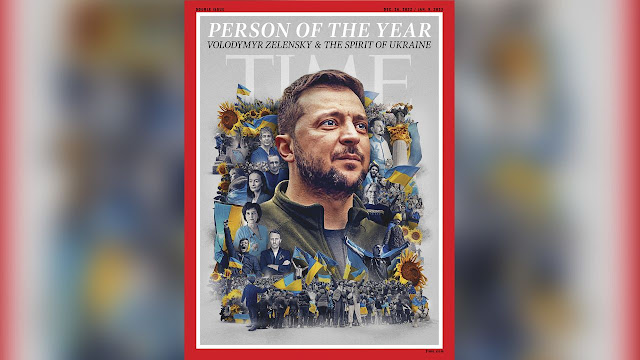"[Y]ou can’t really be an historian without a philosophy of history. You have to understand the nature of causation. These days, nobody bothers with that, which is why a lot of academic history is garbage ... There [is] a very central problem, namely that any causal statement ... implies a counterfactual....
"Lewis Namier was a great Cambridge historian who said that the key to history was having a sense of what didn’t happen. And I always think of Thelonious Monk’s line about jazz. 'It’s the notes you don’t play.' And as a jazz fan, I think history has to have that kind of Thelonious Monk feel to it where you’re telling the reader, 'This didn’t happen, but it nearly did, and people at the time thought about it.' ...
"[T]here is [therefore] a very important role for contingency, and that continues to be true today.... Contingency here means a relatively small event or decision. And it doesn’t need to be a decision. It can be something accidental, [that] has very major consequences. And historical causations like that, something relatively small, can have tremendous ramifications.
"I’ll give you [a contemporary] illustration. This year, most people, including the US government, thought that if Russia invaded Ukraine, the Ukrainian government would quite quickly fold, and it was assumed that Volodymyr Zelenskyy, the Ukrainian president, would bail. He didn’t. He gave his famous response, 'I don’t want an air ticket. I want ammunition.' And Zelenskyy’s courage when they were closing in on Kyiv with a high probability that they [the Russians] would assassinate, turned the course of history in a way that I think is now quite widely understood....
"[I]t emboldened ordinary Ukrainians not to fold, and it also intimidated the collaborators who were ready to help the Russians, not to act. So the contingency there is if Zelenskyy had gone according to our expectation and taken the plane, then Putin would’ve had Kyiv within a matter of days or weeks, and the war would be over.
"So I think one of the things that’s exciting about the study of history is you are trying to remind yourself again and again that what happened, that what we know happened, might have gone the other way. That the Cuban Missile Crisis ended in both sides essentially backing down was not predetermined. There was a moment when a Soviet submarine commander gave the order to fire a nuclear torpedo at US naval surface ships. So we came within a hair’s breadth of World War III. These alternate worlds, these histories that didn’t happen, have to be alive in your mind when you are writing history.
"The fatal mistake is to write history as if it was bound to happen the way it happened. And this, of course, is the mistake that a great majority of historians make. Forgetting that, we don’t know at the time, at the moment, we didn’t know the morning of the 24th of February that Zelenskyy would stand his ground. Nobody knew that. I wonder if even Zelenskyy at that moment knew what it was that he was going to do.
"So I say all this because I think it’s really important to convey ... how exciting history is, and how studying it makes you understand the course of events in your own life better -- removes that passivity to which people sometimes succumb. If you think great historical forces are going to have inevitable outcomes, if you have a deterministic view of the historical process, it’s very easy to lapse into fatalism. (There’s the other trap, which is the conspiracy theories. 'Well, the truth of the matter is that actually, Soros and the Rothschilds are orchestrating all this.' Again, you throw up your hands and you abandon the attempt to understand how the historical process works.)"~ Historian Niall Ferguson, in conversation with Tim Ferriss, taken from 'The Tim Ferriss Show Transcripts: Niall Ferguson, Historian — The Coming Cold War II, Visible and Invisible Geopolitics, Why Even Atheists Should Study Religion, Masters of Paradox, Fatherhood, Fear, and More'
Here's Thelonious Monk...

2 comments:
I've removed the comment from the Russian bot.
Post a Comment